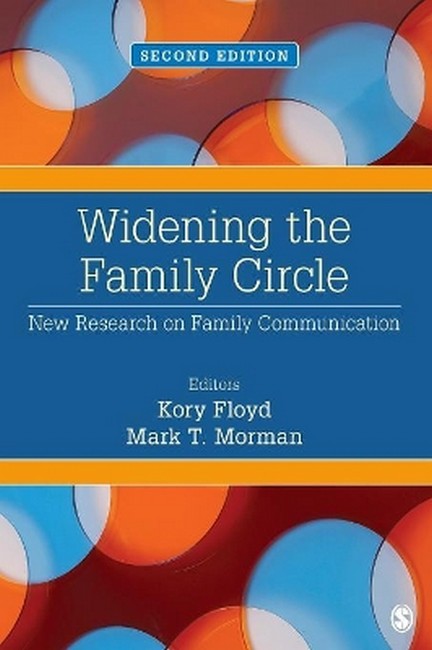Kory Floyd is a professor of communication and professor of psychology at the University of Arizona. His research focuses on the communication of affection in close relationships and its effects on stress and physiological functioning. He has written 16 books and over 100 scientific papers and book chapters on the topics of affection, emotion, family communication, nonverbal behavior, and health. He is a Fellow of the International Communication Association and a former editor of Communication Monographs and Journal of Family Communication. His work has been recognized with the Mark Knapp award for distinguished scholarship in interpersonal communication, the Bernard J. Brommel award for distinguished scholarship in family communication, and the Charles H. Woolbert award for lasting scholarly contribution from the National Communication Association. He has also received the Distinguished Scholar Award from the Western States Communication Association, and the Early Career Achievement award from the International Association for Relationship Research. One of his most recent books, The Loneliness Cure, examines the problem of affection deprivation and identifies strategies for increasing affection and intimacy in close relationships. As an educator, he teaches courses on health communication, emotional communication, close relationships, communication theory, and quantitative research methods. A native of Seattle, Professor Floyd received his undergraduate degree from Western Washington University, his master's degree from the University of Washington, and his PhD from the University of Arizona. Mark T. Morman is a professor of communication in the Department of Communication at Baylor University. For more than 33 years he has taught interpersonal and family communication at both the undergraduate and graduate levels. In addition to publications in professional journals he is the co-editor (along with Dr. Kory Floyd) of Widening the Family Circle: New Research in Family Communication (2nd ed.). His scholarly and curricular interests include the communication of affection, father-son relationships, and men's health. He served as chair of both the family and interpersonal communication divisions of the National Communication Association and has served on multiple editorial boards including Communication Monographs and the Journal of Social and Personal Relationships. He holds a master's and doctorate in Communication Studies from the University of Kansas and a bachelor's degrees in communication from Southern Utah University.
Request Academic Copy
Please copy the ISBN for submitting review copy form
Description
Introduction - Kory Floyd and Mark T. Morman 1. Looking Back and Moving Forward: Toward an Understanding of Mother-Daughter and Mother-Son Relationships - Michelle Miller-Day, Carla L. Fisher, and Jonathan Stube 2. Adult Sibling Relationships - Alan C. Mikkelson 3. Communication in Grandparent-Grandchild Relationships - Jordan Eli Soliz and Mei-Chen Lin 4. The "Other" Women in Family Life: Recognizing the Significance of Aunt/Niece/Nephew Communication - Patricia J. Sotirin and Laura L. Ellingson 5. Family Communication among Uncles and Nephews - Robert M. Milardo 6. Relationships with Parents-in-Law - Mary Claire Morr Serewicz 7. Sibling-in-Law Relationships - Christina G. Yoshimura 8. Fathering, Caregiving, and Masculinity: Stay-at-Home Fathers and Family Communication - Caryn E. Medved 9. Lesbian and Gay Families - Elizabeth A. Suter and Daniel S. Strasser 10. Widening the Understanding of Post-Divorce Families - Tamara D. Afifi, Anne Merrill, and Sharde Davis 11. No Longer Understudied, but Still Misunderstood: Expanding Communication Research on Stepfamily Relationships - Paul Schrodt and Dawn O. Braithwaite 12. Created Through Law and Language: Communicative Complexities of Adoptive Families - Kathleen M. Galvin and Colleen Colaner
"Floyd and Morman are on the cutting edge of family communication. They are insightful, interesting, and unique in their approach to presenting family communication. I appreciate their efforts. They are bringing a useful and important textbook to other scholars and students. Hats off to them!" -- Kandi L. Walker

